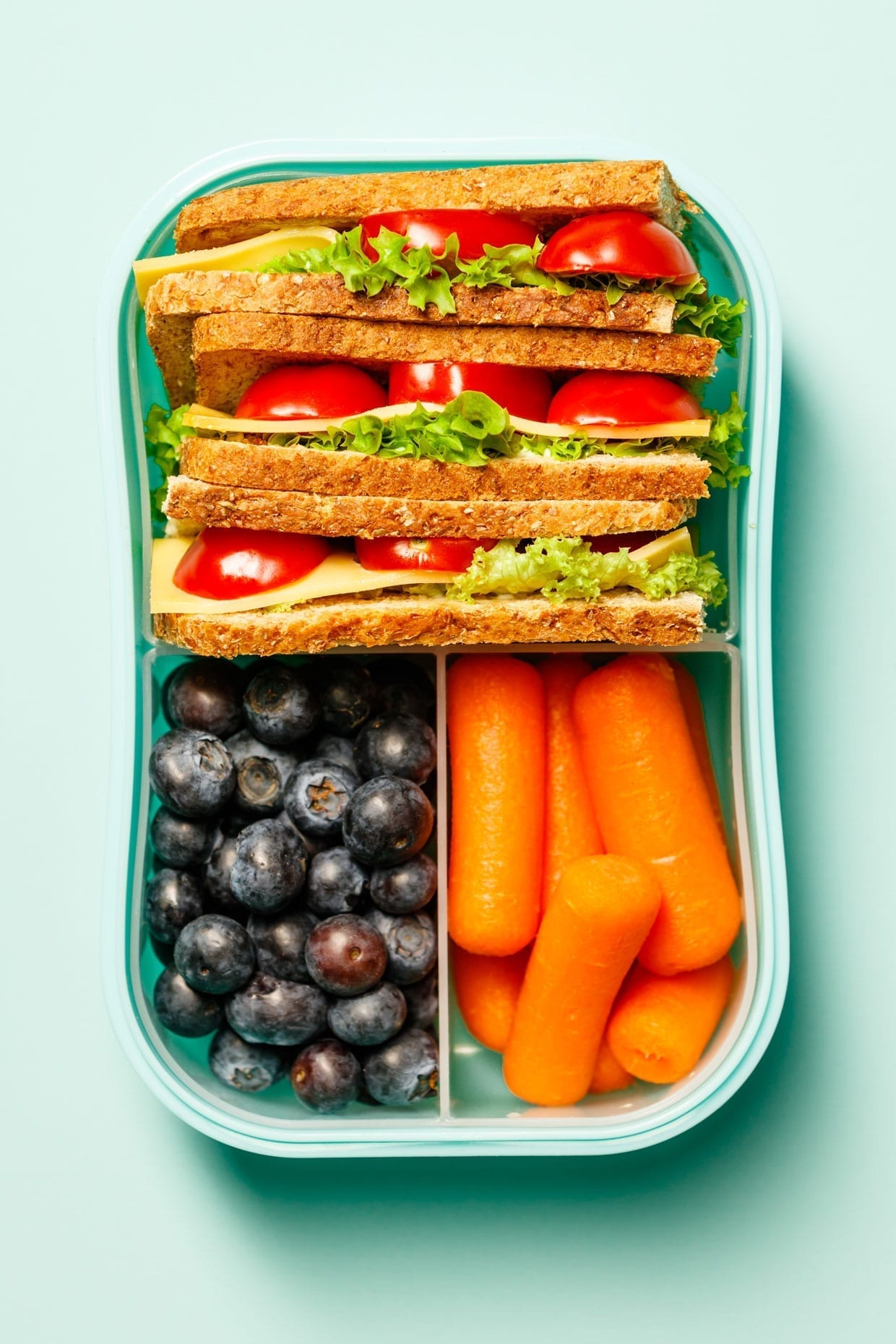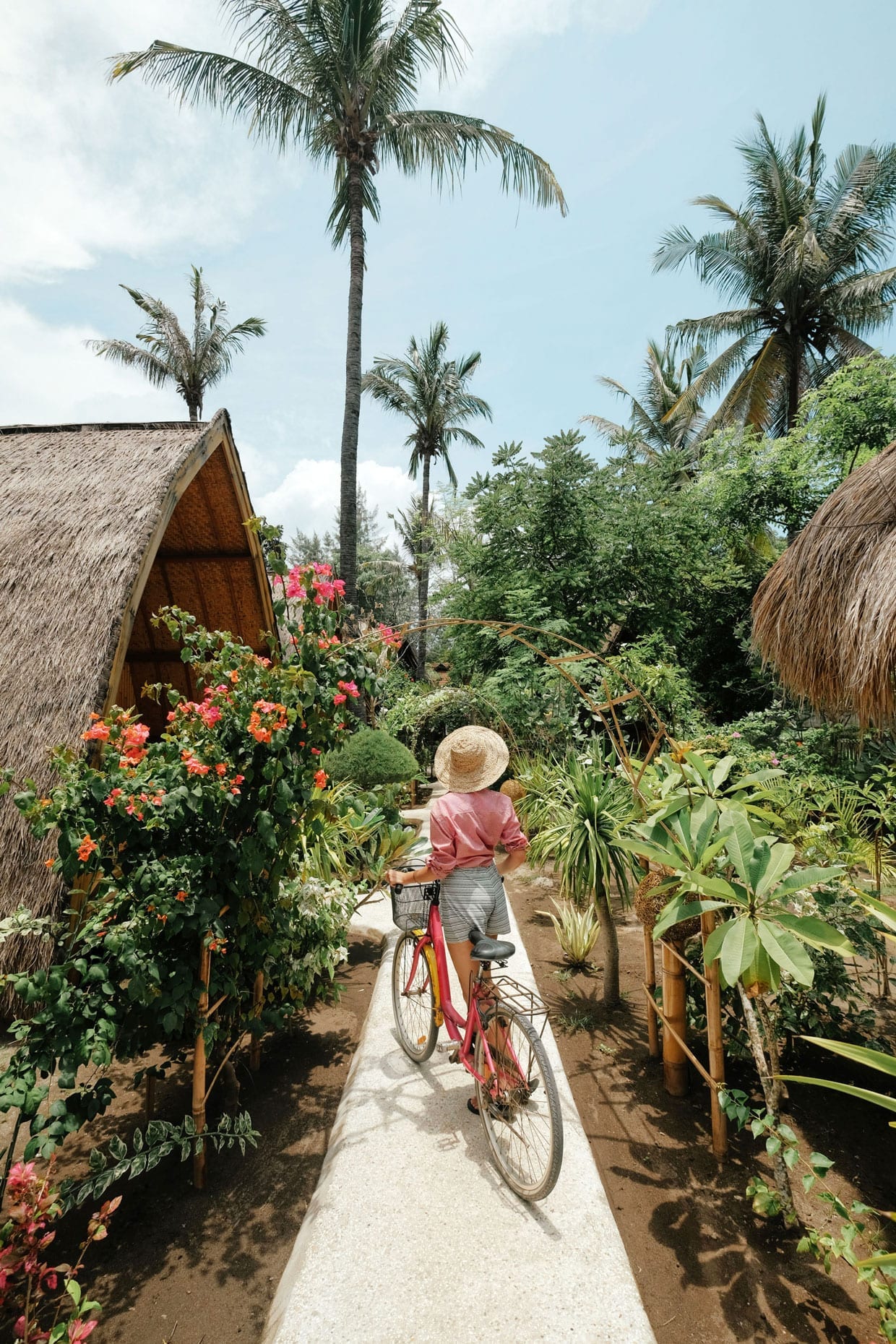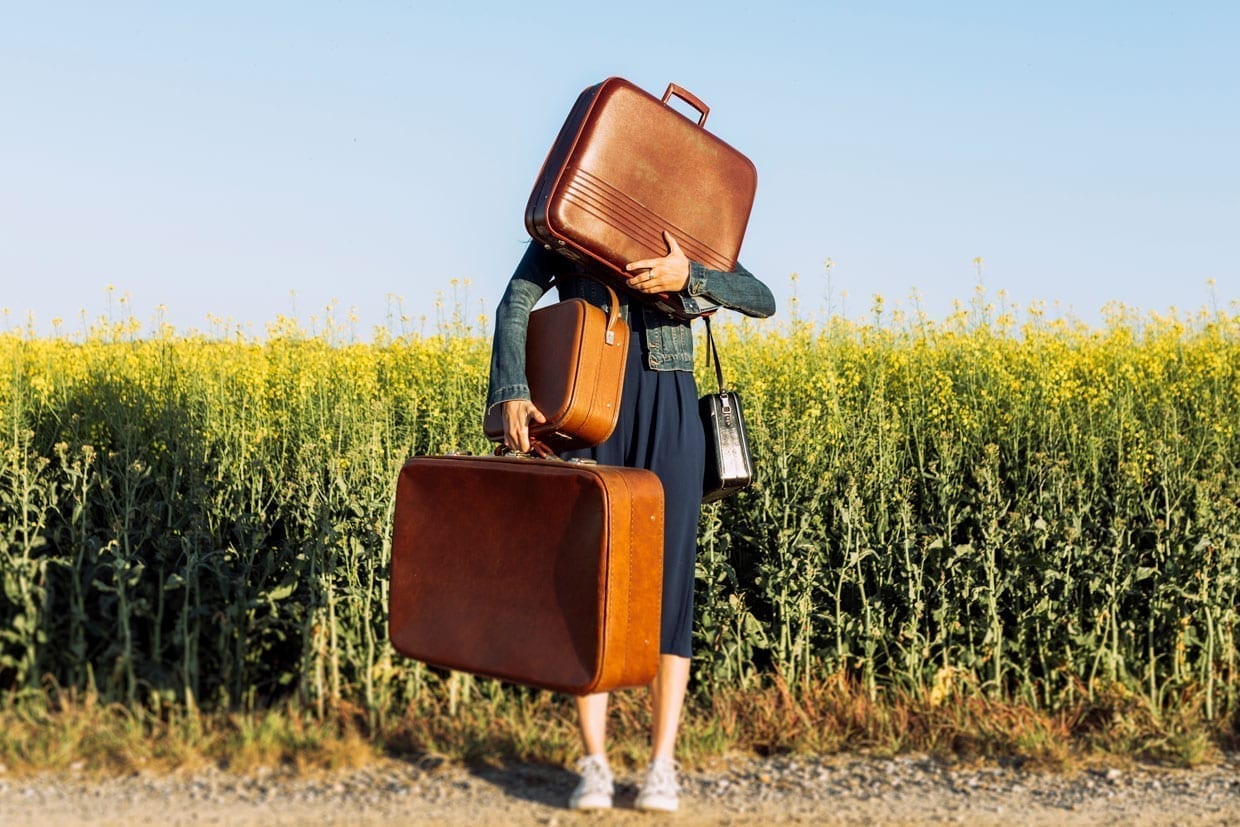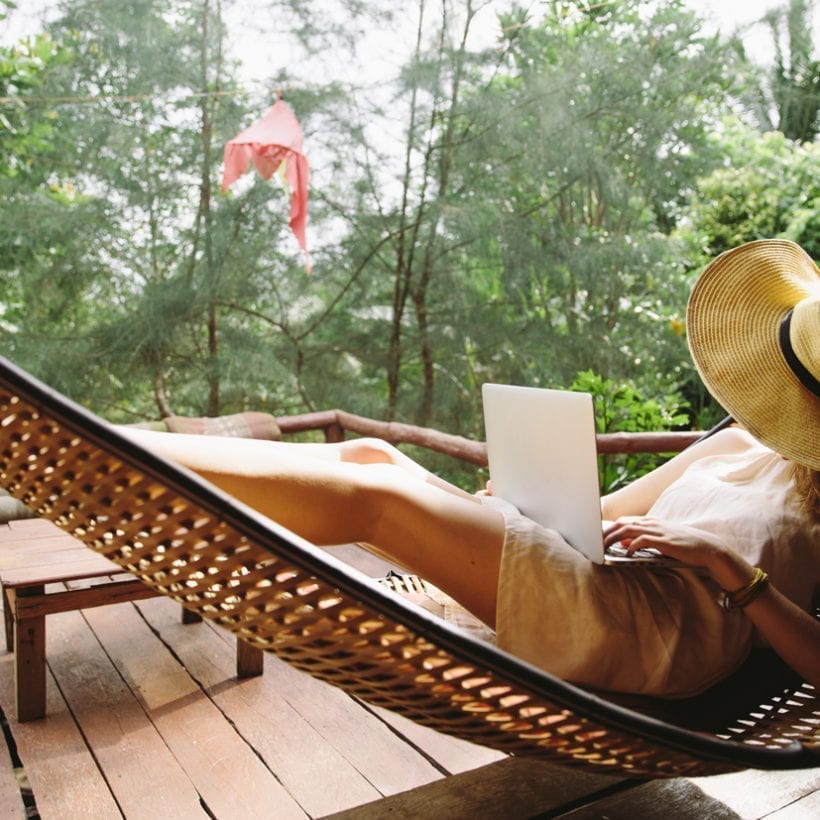It is official: The season of summer travel is upon us. Along with replenishing your stash of the best SPF formulas, this also likely means you will spend a lot of time in transit. While hopefully your destination is restful and restorative (sleeping in, anyone?) the journey to getting there can do a number on your health.
Greasy, sugar-loaded airport food, early departures that throw off your sleep schedule and hours in a cramped airplane seat can be brutal on your body — and make you more susceptible to getting sick. On top of that, transit hubs like airports are often breeding grounds for bacteria — a recent study confirmed airport surfaces like security trays and handrails are covered with strains of cold and flu viruses. The combo can leave you feeling worse for wear by the time you land.
And the last thing you want is to be sick on vacation (or, let’s be real, to feel like your trip has tanked your health goals before you have even had time to enjoy an umbrella drink on the beach). So, here is everything you need to know to stay healthy while traveling — no matter how many junk food-filled airport convenience stores or sleep-deprived flights you encounter.
Before You Go
Think of healthy foods like SPF: They can help keep you protected so you can enjoy your hard-earned vacation days as much as possible. “I encourage clients to consume fruits and veggies rich in color (like berries, citrus fruits, bell peppers) that contain vitamins and antioxidants that help keep the immune system strong,” says Yasi Ansari, R.D., a nutritionist in California.

Airports can feel like health deserts, but luckily this is changing as major airports make a push to offer healthier alternatives that will not leave you feeling so bloated by the time you board your flight. Still, it is wise to plan ahead says Ansari. “The last thing you want is to feel ‘hangry’ while waiting in the airport security line. Either bring snacks you love or eat a meal before heading to the airport,” she says.
When you do need to grab a snack in the terminal, look for healthy options like trail mix or raw nuts. Not the most exciting, but the combo of fiber, protein and healthy fats will help keep you full until you can get a real meal. Ansari also recommends fiber-rich granola bars (look for versions with a short ingredient list and no added sugar) and protein-packed hummus and veggie snack packs.
Before boarding a plane, she recommends getting a meal that is high in carbohydrates, moderate in protein and easily-digestible fiber. A Greek yogurt parfait or egg sandwich is a good option. “They are both high in protein, which will help you feel fuller.” If you are traveling later in the day, pack a sandwich or wrap and throw it in your carry-on. If that is not an option, at least come to the airport prepared. “Do a restaurant search of what is available at your terminal so you know what to expect,” she says.
It is also important to hydrate before your flight. “While traveling, we are at risk of dehydration since there is very little moisture in the cabin of a plane and we can lose more water from our bodies,” says Ansari. It is kryptonite for travel — not getting enough water can leave you feeling dizzy, tired and confused. Once you are through security, grab a jumbo bottle of water — or even better, bring your own to refill — and start sipping.
In Transit
Before you sit down, disinfect your seat. The tray, screen, armrests, seat itself — just like those airport security trays, airplane seats are crawling with germs. One study found airplane tray tables have almost 17 times more germs than what is on your toilet seat at home. Anti-bacterial wipes are a must.
Once you have sanitized, start hydrating — plane dehydration is no joke since the air in the cabin is significantly drier than the air on the ground (in most climates). Aim to drink one cup of water for every hour of flight time. “Although tempting, coffee, alcohol and high-sugar beverages are not the smartest hydration options while flying,” adds Ansari. “Caffeine can not only contribute to dehydration but can keep you from getting adequate sleep, especially on long trips when it would be beneficial to get those extra Z’s. It can also make your jet lag worse upon arriving at your destination.”
Jet lag, the temporary travel-induced sleep disorder which causes extreme fatigue and that hard-to-shake foggy feeling, gets worse the more time zones you travel through. It is hard to completely avoid — when your internal clock is in New York time but your body is in Singapore, there is only so much you can do to avoid feeling sleepy. But there are things you can do to mitigate jet lag, like avoiding caffeine and sticking to decaf tea with lemon on your flight. Light exposure can also be surprisingly powerful since it tells your body when to wake up and when to power down. If it is nighttime at your destination but you are flying during the day, close your window shade and use an eye mask to try to get some sleep.
Air in the cabin is significantly drier than the air on the ground, so aim to drink one cup of water for every hour of flight time.
Melatonin — the naturally produced hormone that regulates our sleep-wake cycles — in supplement form can also help you sleep naturally on a long-haul flight (and prep for jet lag). But when picking a supplement, there are a few things to consider. “A recent scientific investigation found that the actual melatonin content found in many supplements on the market may vary significantly from what product labels claim. Scientists at Ontario’s University of Guelph found that in more than 71 percent of melatonin supplements, the amount of melatonin was more than 10 percent different from what the product label indicated,” says Michael J. Breus, Ph.D., founder of The Sleep Doctor, in an article about understanding melatonin posted on his site. “That means a great many consumers aren’t taking what they think they are when they use a melatonin supplement. Before you begin using melatonin, be sure to do your research and get your melatonin from a trusted source.”
Breus says that melatonin should never be used during the day (unless your job requires it), and that pregnant women should not take melatonin supplements. But if you are in the clear and looking to help adjust to jet lag, Breus recommends, “0.5 mg to 8 mg, starting upon the day of arrival at destination.” (Note: “Doses are based on amounts that have been investigated in scientific studies. In general, for sleep problems, it is recommended that users begin with the smallest suggested dose, and gradually increase until it has an effect,” he says.)
Eating healthy meals can also help you avoid feeling sluggish when you arrive. Before flying, do a little research on what foods are available, but Ansari recommends bringing your own. The pro pick: a single-serve oatmeal pack. “You can ask for hot water on the plane and add dried fruit, nuts and some nut butter for an easy-to-prep breakfast,” she says. “Fruits like grapes, bananas, apples and dried fruit also travel well.”
Finally, move as much as possible or risk your body cramping permanently into the shape of an airplane seat. (Flying can also increase your risk of blood clots, especially if you have certain health conditions like diabetes or obesity or are pregnant. If you think you might be at risk, let your doctor know about any upcoming flights — and wear compression socks, which can help increase circulation and prevent clots.)
Before boarding or between flights, “I’d recommend walking through the terminal for 30 minutes to get in those extra steps,” says Ansari. You can also try chair yoga — a practice that will save you on long-haul flights. While sitting (aim for once every hour) raise your arms above your head to elongate your spine. You can twist from side to side and roll your shoulders and your neck in circles to help stave off the dreaded stiffness that sets in when you sit for too long. To loosen up your hips, cross one ankle over the opposite knee in a figure-four stretch and lean forward to help release tension.

After You Land
Rather than stress about foods you can’t have once you reach your destination, Ansari recommends thinking about how to make your indulgences a little healthier. “If you’re craving higher fat or higher sugar foods while on a trip, focus on ways you can boost nutrition rather than not eating it at all,” she says. “For example, if you have the option to add more veggies to a pizza, add more veggies and even more lean protein such as grilled chicken for those extra vitamins and protein. If you’re wanting a serving of ice cream, stick to the serving size and add more color and nutrient-rich toppings like almonds and dark or bright colored fruits.”
To help fight any latent jet lag, expose yourself to natural light with a morning walk — the combo of light exercise and actual daylight will help send a signal to your internal clock that it is time to reset. Once you arrive, enjoy yourself — that is the whole point of your vacation after all. Hit the pool and, yes, go ahead and have that umbrella drink.







